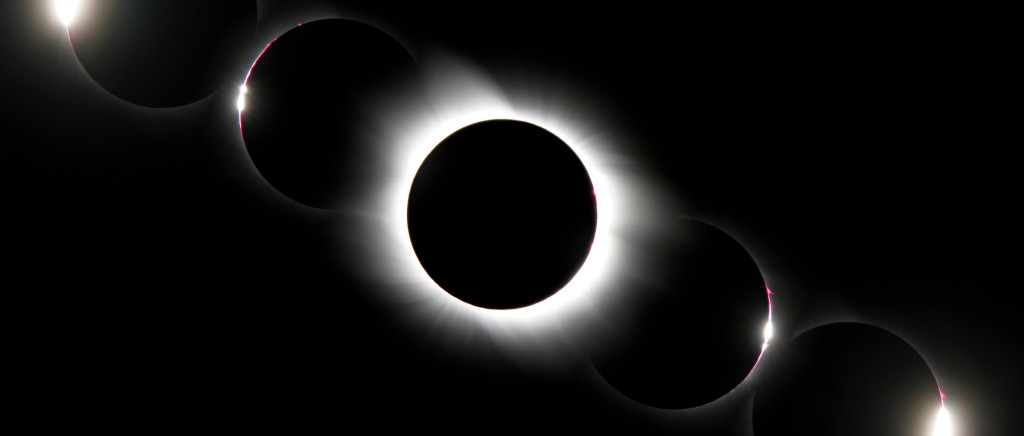Vampire Weekend is in a unique position to capitalize on the total solar eclipse on April 8. In February, Vampire Weekend announced “a special live performance in Austin, Texas, during the historic total eclipse” at the Moody Amphitheater in celebration of their Only God Was Above Us album release on Friday, April 5. But you don’t have to be a Grammy-winning rocker to enjoy the total solar eclipse.
What Time Is The Solar Eclipse On April 8?
NASA has an interactive map because, of course, it does.
“This Monday, April 8, 2024, [a] total solar eclipse will cross North America, passing over Mexico, the United States, and Canada,” the website explains. “The total solar eclipse will begin over the South Pacific Ocean. Weather permitting, the first location in continental North America that will experience totality is Mexico’s Pacific coast at around 11:07 a.m. PST.”
The explanation continues, “The path of the eclipse continues from Mexico, entering the United States in Texas, and traveling through Oklahoma, Arkansas, Missouri, Illinois, Kentucky, Indiana, Ohio, Pennsylvania, New York, Vermont, New Hampshire, and Maine. Small parts of Tennessee and Michigan will also experience the total solar eclipse. The eclipse will enter Canada in Southern Ontario and continue through Quebec, New Brunswick, Prince Edward Island, and Cape Breton. The eclipse will exit continental North America on the Atlantic coast of Newfoundland, Canada, at 5:16 p.m. NDT.”
The website provides a table estimating visibility for various locations — broken into five categories: Partial Begins, Totality Begins, Maximum, Totality Ends, and Partial Ends.
CBS also reported on potential cloud coverage across the projected visibility path throughout April 8.
According to ABC News, nobody should take this total solar eclipse for granted, even though the last one in the US was in August 2017.
“If you look previous to 2017, the last one was in 1979,” former NASA Goddard Space Flight Center astrophysicist Fred Espenak told ABC News. “So it’s a little bit deceptive that these two eclipses were in seven years of each other.”







